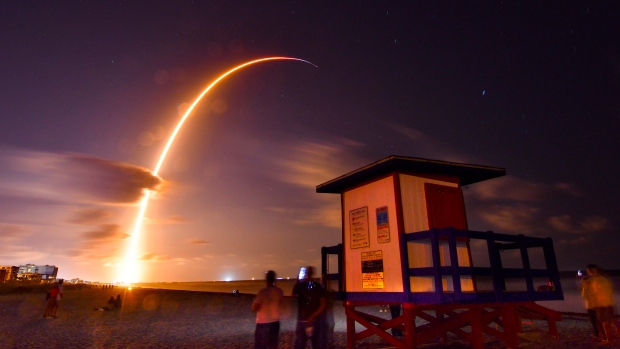Nov 11, 2019
Musk's SpaceX launches second batch of 60 Starlink satellites
, Bloomberg News

Elon Musk’s Space Exploration Technologies Corp. launched its second batch of 60 Starlink satellites early Monday, a step toward Musk’s vision of creating a space-based network to provide broadband service around the world.
One of SpaceX’s Falcon 9 rockets rumbled aloft at 9:56 a.m. local time from Cape Canaveral Air Force Station in Florida. The satellites are scheduled to begin deploying about an hour after the launch.
A space-based internet service will be an important source of funding for the closely held company, Musk has said. He founded SpaceX in 2002 with the ultimate goal of enabling people to live on other planets. SpaceX launched its first batch of satellites in May and has tinkered with the design to increase spectrum capacity.
SpaceX plans to continue launching Starlink satellites in batches and says it’s targeting service to parts of the northern U.S. and Canada in 2020, according to Starlink’s website.
“We see this as a way for SpaceX to generate revenue that can be used to develop more advanced rockets and spaceships,” Musk told journalists during a conference call in May. “This is a key stepping stone on the way toward establishing a self-sustaining city on Mars and a base on the moon.”






